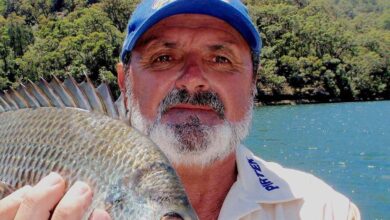Teen Thought She Was Having Her First Period Before Receiving Shocking Diagnosis
:max_bytes(150000):strip_icc():format(jpeg)/liliana-castaneda-91825-92ccbb2d9fb0457e990d89bbfd1149ed.jpg)
NEED TO KNOW
- Liliana “Lili” Castaneda thought she was having her first period during the COVID-19 pandemic
- The then 14-year-old sought medical care when she began bleeding daily, but her symptoms were dismissed as pandemic stress
- After her symptoms were initially dismissed, Castaneda received a shocking diagnosis
A 14-year-old in Chicago who thought she was having her first period ended up being diagnosed with a rare vaginal cancer.
Liliana “Lili” Castaneda started losing blood during the COVID-19 pandemic and initially believed she was experiencing her first menstrual cycle. At first, she was excited about it, however, the monthly bleeding then turned into daily bleeding, per a Northwestern Medicine press release.
The teenager was losing so much blood that it ended up soaking through menstrual pads in 15 minutes, and she would get dizzy when standing up. But, when she told a doctor about her symptoms, they said her condition was just stress due to the pandemic.
Lurie Cancer Center at Northwestern Medicine
Castaneda, now 19, ended up receiving a shocking diagnosis just one month before her 15th birthday after she went back to the doctor with her symptoms. She was told she had a rare vaginal cancer called clear cell carcinoma, which is typically found in the female reproductive system in postmenopausal women, the release stated.
Per the National Cancer Institute at the National Institutes of Health (NIH), clear cell carcinoma is “a rare type of cancer in which the cells look clear when viewed under a microscope.”
“Clear cell carcinoma occurs most often in the kidney and in the female reproductive organs. Also called clear cell adenocarcinoma,” the site adds.
Liliana Castaneda
Abnormal bleeding, bleeding between periods or after menopause, along with pain or urinary symptoms could be some of the first signs of clear cell carcinoma of the vagina, Northwestern Medicine said, urging anyone experiencing those symptoms to get checked out.
“If you feel like something is wrong, don’t hesitate and get it checked out,” Castaneda insisted.
Lurie Cancer Center at Northwestern Medicine
Dario Roque, MD, a gynecologic oncologist at the Lurie Cancer Center at Northwestern Medicine, said of Castaneda’s diagnosis, “In my 15 years of practicing medicine, Liliana is the youngest patient I’ve treated for clear cell carcinoma – most of my patients are in their 60s,” per the release.
Dr. Roque is from Cuba and speaks Spanish, meaning he could communicate easily with Castaneda’s mother, who only speaks Spanish. He ended up taking on the teen’s case after pediatric hospitals in Chicago declined to accept her as a patient due to clear cell carcinoma of the vagina not being a childhood cancer.
Jonathan Strauss, MD, who was Castaneda’s radiation oncologist at the Lurie Cancer Center, said of the treatment the teenager had, “Liliana’s tumor was about the size of a golf ball.”
“At the time of her diagnosis, the tumor was too large for us to surgically remove it, so we had to use external and internal radiation therapies to help shrink it. It took a lot of radiation to get rid of her tumor, along with chemotherapy,” he added.
Liliana Castaneda
The release noted that “certain cancer treatments, like chemotherapy and radiation, can negatively impact a patient’s ability to have children, which is why fertility preservation prior to the start of treatment is essential for many patients.”
However, because Castaneda had been born with Turner syndrome — a genetic condition that affects females and causes infertility — “preserving her fertility was not an option or a choice the family had to make,” the healthcare system confirmed.
Never miss a story — sign up for PEOPLE’s free daily newsletter to stay up-to-date on the best of what PEOPLE has to offer, from celebrity news to compelling human interest stories.
Per the Mayo Clinic, “Turner syndrome, a condition that affects only females, results when one of the X chromosomes (sex chromosomes) is missing or partially missing. Turner syndrome can cause a variety of medical and developmental problems, including short height, failure of the ovaries to develop and heart defects.”
Medics don’t believe Castaneda’s Turner syndrome diagnosis had anything to do with her cancer diagnosis, the release stated.
Around five years after her clear cell carcinoma diagnosis, Castaneda is now excited for the future and wants to become a nurse after officially being declared cancer-free in March 2021.
“I can’t wait to become a nurse and help other kids navigate their medical journey,” she said, per the release.
Credit to Nypost AND Peoples



